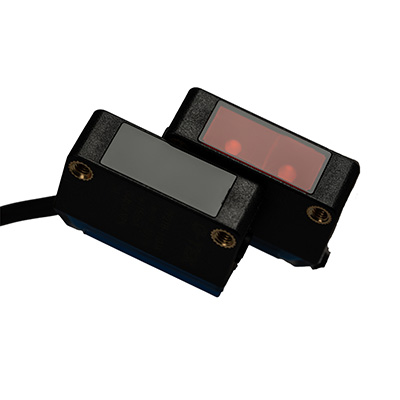NEWS
There are several classifications of photoelectric sensors
- Categories:photoelectric sensor news
- Author:
- Origin:
- Time of issue:2021-12-22 16:24
- Views:
(Summary description)With the advancement of science and technology and the popularization of intelligence, the photoelectric sensor also ushered in its spring. In this society with rapid technological development.
There are several classifications of photoelectric sensors
(Summary description)With the advancement of science and technology and the popularization of intelligence, the photoelectric sensor also ushered in its spring. In this society with rapid technological development.
- Categories:photoelectric sensor news
- Author:
- Origin:
- Time of issue:2021-12-22 16:24
- Views:
With the advancement of science and technology and the popularization of intelligence, the photoelectric sensor also ushered in its spring. In this society with rapid technological development, photoelectric sensors have begun to be widely recognized and used by people due to their high-quality characteristics. But for many people, they still don't know the photoelectric sensor or the classification of the photoelectric sensor. Today, I will introduce the photoelectric sensor and the classification of the photoelectric sensor.

Everyone may know that the photoelectric sensor is a sensor that uses a photoelectric element as the detection element. It first converts the measured change into a change in an optical signal, and then further converts the optical signal into an electrical signal with the help of photoelectric elements. The classifications are as follows:
1. Groove photoelectric sensor
A slot-shaped photoelectric is installed on both sides of a slot with a light transmitter and a receiver face to face. The illuminator can emit infrared light or visible light, and the light receiver can receive light without obstruction. But when the detected object passes through the slot, the light is blocked and the photoelectric switch is activated. Output a switch control signal to cut off or switch on the load current to complete a control action. The detection distance of the slot switch is generally only a few centimeters due to the limitation of the overall structure.
2. Opposite photoelectric sensor
If the light-emitting device and the light-receiving device are separated, the detection distance can be increased. The photoelectric switch composed of a light emitter and a light receiver is called a through-beam separated photoelectric switch, referred to as a through-beam photoelectric switch. Its detection distance can reach several meters or even tens of meters. When in use, the light emitter and the light receiver are respectively installed on both sides of the passing path of the detected object, and the light path is blocked when the detected object passes, and the light receiver acts to output a switch control signal.
3. Reflective plate type photoelectric switch
Put the light emitter and the receiver into the same device, install a reflector in front of it, and use the principle of reflection to complete the photoelectric control function called the reflector reflection type (or mirror reflection type) photoelectric switch. Under normal circumstances, the light emitted by the illuminator is reflected by the reflector and received by the light receiver; once the light path is blocked by the detection object and the light receiver cannot receive light, the photoelectric switch will act and output a switch control signal.
4. Diffuse reflection type photoelectric switch
It also has a light-emitting device and a light-receiving device in its detection head, but there is no reflector in the front. Under normal circumstances, the light receiver from the illuminator cannot be found. When the detection object passes through and blocks the light and reflects part of the light back, the receiver receives the light signal and outputs a switch signal.
The above is a detailed answer to the photoelectric sensor that you have been wondering for a long time. I believe it can help you understand the photoelectric sensor better!
Scan the QR code to read on your phone
Copyright © 2019 Tianjin G-TEK sensor technology co..ltd 津ICP备19006465号-1 Powered By 300.cn










